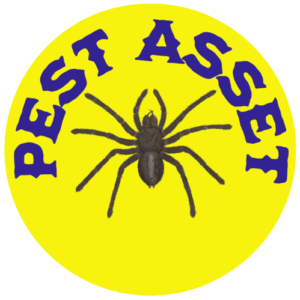Mosquitoes: A Deadly Pest
Introduction
Mosquitoes represent one of the deadliest pests on Earth. As vectors, they transmit serious diseases that claim millions of lives each year and sicken hundreds of millions more across the globe [1]. Their persistence and tendency to rapidly multiply under the right conditions allow them to swiftly infest areas. This foothold permits efficient disease transmission.
The Life of a Mosquito
Mosquitoes undergo complete metamorphosis with four distinct life stages. It begins when an adult female lays around 100-200 eggs at a time on the surface of stagnant water sources. A female may repeat the egg-laying process every third night during her short 2-6 week adulthood [2].
Egg Stage – Eggs initially appear as tiny black specs along the water’s edge. Within days, larvae hatch out fully submerged.
Larva Stage – Larvae, nicknamed wigglers, swim and feed on algae and organic matter. They periodically surface to breathe air through a snorkel-like siphon before pupating after 5-14 days.
Pupa Stage – During this 2-3 day stage, they transition into adults inside non-feeding pupae shells until maturation finishes.
Adult Stage – Upon emerging, adult mosquitoes rest on the water’s surface until their wings fully dry and harden before taking first flight. Only females bite to extract the protein in blood needed for egg production. Agile fliers, mosquitoes can travel up to 1-3 miles from their birthing site.
Mosquito Behavior
Oddly enough, mosquitoes do not bite humans purely for our blood. They actually have a preference for nectar from plants. However, females require the protein and iron found only in the blood to develop eggs. Specialized receptors on their antennae and mouths detect exhaled carbon dioxide, lactic acid residues, and hundreds of other compounds that serve as irresistible attractants to seek out hosts [3].
Once landing on exposed skin, they probe painlessly with their syringe-like mouthpart called a proboscis to locate capillaries. Saliva injected during the bite prevents blood from clotting during feeding. Traces of this saliva left behind causes the familiar itchy welt.
Diseases Transmitted by Mosquitoes
Mosquitoes spread extremely harmful illnesses like Malaria, Dengue Fever, Yellow Fever, West Nile, Encephalitis, and more through the transfer of parasites and viruses during biting [4].
Worldwide, malaria kills over 400,000 annually. Dengue fever infects nearly 100 million people every year, predominantly in Africa, the Western Pacific, & the Americas. Endemic to tropical regions, these diseases dynamically ebb and flow based on mosquito populations and containment efforts.
Travelers must take strict precautions like vaccinations, preventative medication, protective clothing, nets, and repellants when visiting regions harboring these illnesses. Even in the U.S., diseases like West Nile pose increasing concern.
Mosquito Control
Eliminating standing water where they reproduce is crucial to limiting populations. Water should drain from flower pots, gutters, pools, birdbaths, and other vessels every 5-7 days to inhibit larvae growth.
Chemical insecticides, growth regulators, and biological toxins present options for managing water sources and vegetation where mosquitoes hide. Area-wide truck-mounted misting/spraying provides temporary relief outdoors. Inside, devices like the mosquito misting system offer ongoing protection.
Barrier tactics include window & door screens, protective clothing, nets, and repellants. Topical repellants prevent bites on exposed skin for several hours.
Conclusion
Mosquitoes demand serious management efforts given their ability to exploit temporary pools of water to swiftly multiply. As voracious disease vectors, they present severe risks to humans and pets. An Integrated Mosquito Management approach combines sanitation, chemical treatments, exclusion barriers, and population surveillance to provide maximum control with minimal environmental impact.
References
[1] https://www.who.int/news-room/fact-sheets/detail/mosquito-borne-diseases
[2] https://www.cdc.gov/mosquitoes/about/life-cycles/index.html [3] https://www.sciencedaily.com/releases/2020/01/200116141708.htm
[4] https://www.epa.gov/mosquitocontrol



